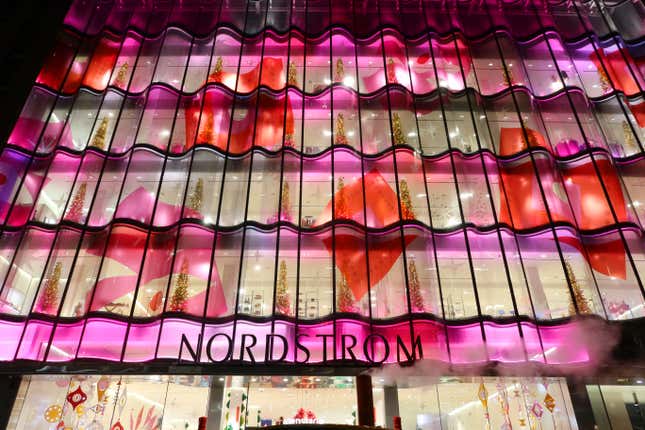
In This Story
Nordstrom (JWN-1.55%) is finally going private after 53 years of trading on the public market.
Shares of the company fell slightly in early trading hours on Monday following the announcement that the department chain would be bought in all-cash deal valued at $6.25 billion. The transaction, backed by the Nordstrom family and Mexican retailer El Puerto de Liverpool, is expected to close in the first half of 2025, pending regulatory approval.
“Today marks an exciting new chapter for the business,” said CEO Erik Nordstrom, in a statement. “We look forward to working with our teams to ensure Nordstrom thrives long into the future.”
The move to go private comes as the company faces mounting challenges from retail giants like Amazon (AMZN+0.50%) and Walmart (WMT-2.78%), which have captured an increasing share of the market in recent years. In April, Erik and Pete Nordstrom, CEO and president of the company, began discussions to take the business private after evaluating ways to increase shareholder value. Speculation around Nordstrom’s potential move to private ownership have been circulating for quite some time.
Back in 2018, the department store attempted to go private after forming a special committee to evaluate its options in 2017. That deal, however, fizzled out. But in April of this year, the Nordstrom family seriously considered the move again. By September, they had offered $3.8 billion in cash to take it private.
Founded as a shoe store in 1901, Nordstrom has spent over a century building its reputation as a go-to brand for upscale shopping. But in recent years, the company has struggled to maintain its competitive edge, grappling with declining sales and changing consumer habits. Earlier this year, Nordstrom’s discount spinoff, Rack, reported a 14.6% surge in sales as consumers increasingly opted for lower-priced options.
Nordstrom’s shift to private ownership marks the end of an era but also the beginning of a new chapter aimed at securing the brand’s place in a highly competitive retail landscape. Firms like Morgan Stanley (MS+0.53%) and J.P. Morgan (JPM-0.17%) served as financial advisors to the parties involved.




